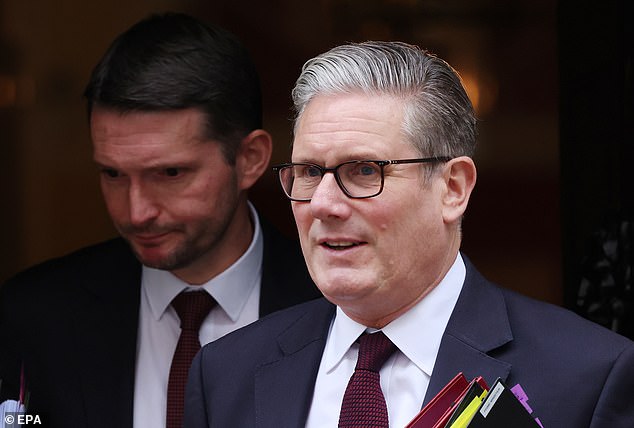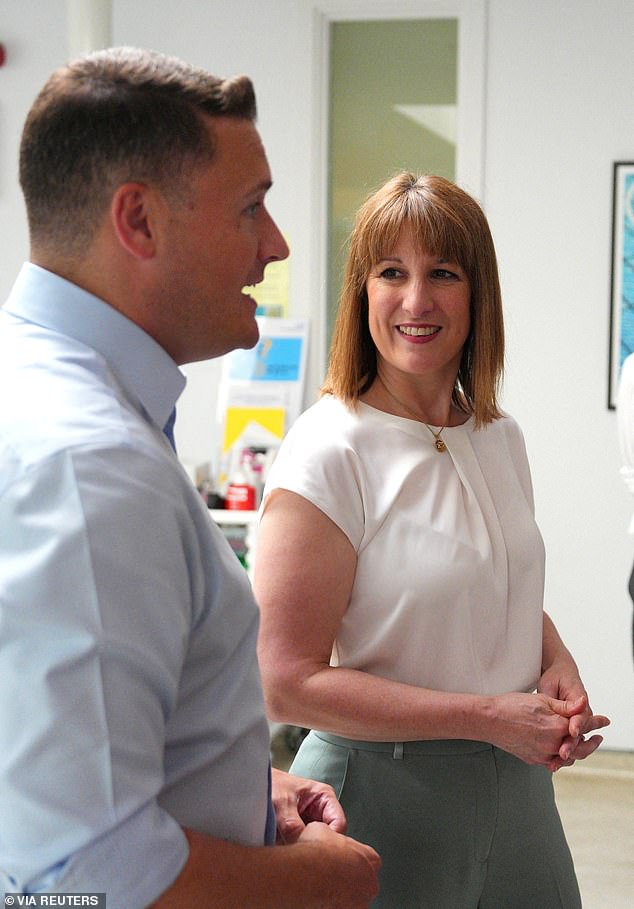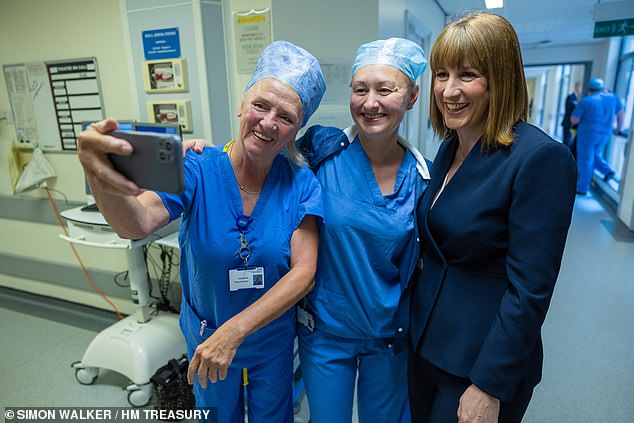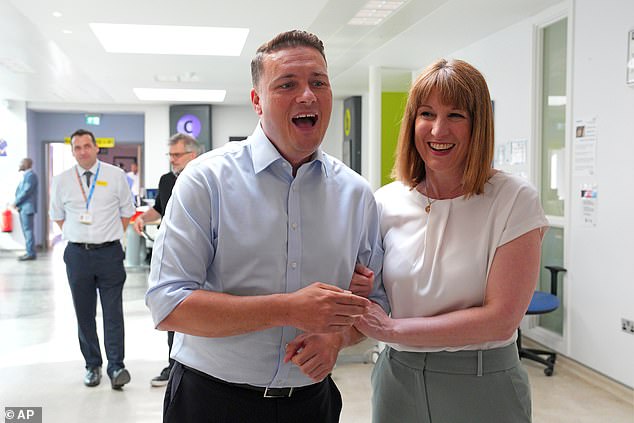Patients will be treated by GPs rather than getting specialist care in hospitals under radical reforms as Keir Starmer battles to tackle the NHS crisis.
Routine appointments will be dealt with in community services close to patients’ homes in a move they believe could ‘fix the waiting list’.
The health service will also ramp-up technology meaning patients will have less in-person appointments – instead using like the NHS app and wearable devices to monitor patients remotely.
NHS bosses claim half of the 135 million hospital outpatient appointments every year are ‘pointless’ and follow-ups and consultations could instead be done in high-street surgeries.
It comes as the government is set to launch a ten-year plan to create a ‘neighbourhood health service’, The Times reports.
‘As we deliver the transformational shifts in our 10 Year Plan, from hospital to community, analogue to digital, and sickness to prevention, it will have radical implications for services,’ Health Secretary Wes Streeting told the NHS ConfedExpo in Manchester.
‘Much of what’s done in a hospital today, will be done on the high street, over the phone, or through the app in a decade’s time.’
The plans are set to link family doctors, nurses, social care services and volunteers with money being paid to NHS regions based on how effective their care is rather than how busy the hospitals are.

Wes Streeting, British health secretary and Rachel Reeves, chancellor of the exchequer visit St Thomas’ Hospital

NHS bosses claim half of the 135 million hospital outpatient appointments every year are ‘pointless’ and follow-ups and consultations could instead be done in high-street surgeries. Pictured: Keir Starmer

The news comes after Chancellor Rachel Reeves gave the NHS a cash injection worth an extra £29 billion per year
Streeting added: ‘We will use financial incentives to invest more in public health outcomes, not just in more activity that reacts to sickness.’
Earlier this week, figures revealed that the number of patients waiting has fallen to its lowest point in two years – but the number of patients waiting for more than a year for hospital treatment has increased.
The news comes after Chancellor Rachel Reeves gave the NHS a cash injection worth an extra £29 billion per year.
Speaking to the Commons, the Chancellor said she is making a ‘record cash investment’ in the NHS, worth an extra 3 per cent a year in real terms.
The Chancellor insisted this would lead to ‘more appointments, more doctors and more scanners’ as Labour seeks to deliver on its manifesto promise to get the NHS ‘back on its feet’.
But the settlement received a lukewarm response from NHS bosses, who said they would need even more money if the Government is to achieve its aim of treating 92 per cent of patients within 18 weeks of a GP referral by the end of this Parliament.
Matthew Taylor, of the NHS Confederation, which represents health organisations, said: ‘Difficult decisions will still need to be made as this additional £29billion won’t be enough to cover increasing costs of new treatments, with staff pay likely to account for a large proportion of it.
‘On its own, this won’t guarantee that waiting time targets are met.’

Speaking to the Commons, the Chancellor said she is making a ‘record cash investment’ in the NHS, worth an extra 3 per cent a year in real terms

Wes Streeting and Rachel Reeves visited St Thomas’ Hospital in London
Sir Jim Mackey, chief executive of NHS England, told the NHS ConfedExpo conference in Manchester that the health service has done ‘really well relative to other parts of the public service’.
But he added: ‘We all know it’s never enough because of the scale of advancement, all the ambition, the day-to-day cost pressures… but I think everyone’s starting to accept and understand we’ve got what the country can afford to give us.
‘We really need to get better value for that money – it is broadly the equivalent of the GDP of Portugal, so it’s a huge amount.’
Government documents accompanying the Spending Review show that, on average, from 2023/24 to 2028/29, the NHS in England will receive 3 per cent real-terms growth in day-to-day spending, equivalent to a £29billion increase in annual budgets
The Government said it will also invest up to £10 billion in NHS technology and digital transformation by 2028/29, plus £6 billion to speed up tests and treatments.
Scanners, ambulances and urgent treatment centres are among things the additional cash – part of the overall £29 billion – will pay for, with the aim of providing up to 4 million more tests and procedures in the next five years.
NHS England figures show 7.42 million treatments were waiting to be done at the end of March, relating to 6.25 million patients – up from 7.4 million and 6.24 million respectively at the end of February.












